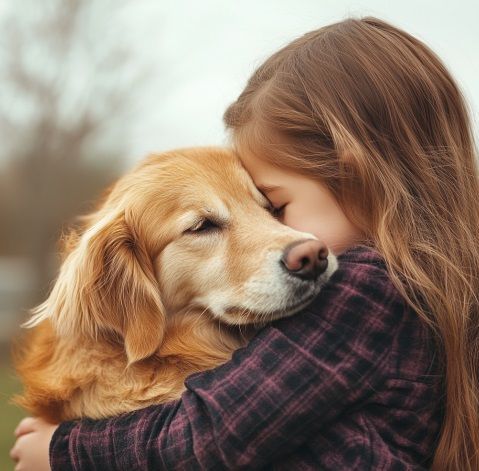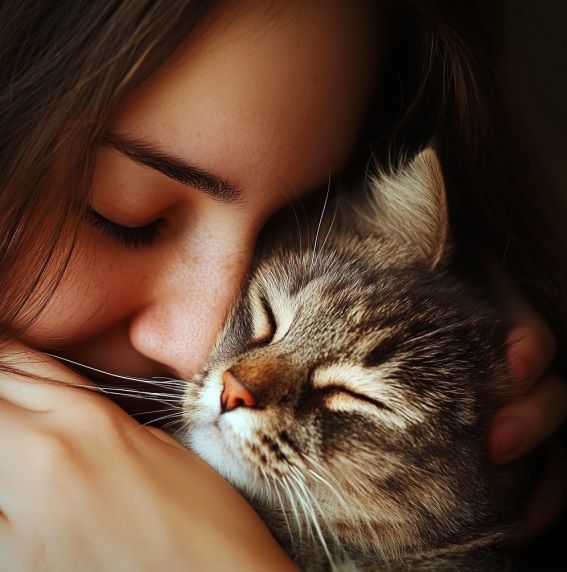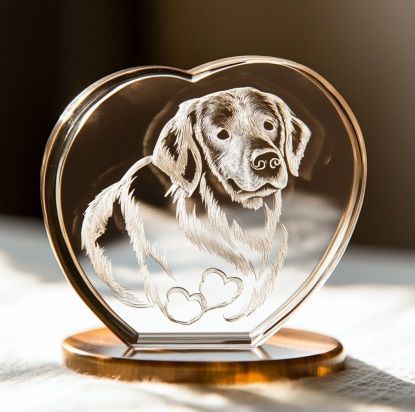What to Say to Someone Who Has Lost a Pet
What to Say to Someone Who Has Lost a Pet
Pets are members of the family, and the loss of a beloved companion can be just as emotionally devastating as the loss of any other loved one. In some ways, the death of a pet can be even more isolating because it’s often misunderstood. People who are not animal lovers will often say things that are unintentionally callous while trying to be comforting. They mean well, but a thoughtless comment can add more pain to one’s grief.
Attitudes that pet death “isn’t a big deal” can make a pet parent feel ashamed or self-conscious of their feelings. They might try to hide their emotions or force themselves to “get over it” too quickly. Unfortunately, being isolated with these unpleasant feelings make grieving the loss of a pet even more difficult than it has to be.
What NOT to Do When Someone’s Pet Dies
If someone in your life has recently lost a pet or is likely to be in that position soon, it’s a good idea to plan what to say in order to offer support. Here are a few tips on things to avoid:
- Don’t invalidate their feelings. Statements like “It was just a cat” or “At least you still have your other pets” are unhelpful. The pet parent is grieving because they lost someone special to them, and that loss deserves to be respected and acknowledged for what it is, without any qualifiers.
- Don’t add to guilt. Many pet parents find themselves needing to make difficult choices for their pet’s care. It is not helpful to make suggestions for how a medical problem could have been handled differently. Also avoid saying things like “Now he’s not suffering anymore” or “She’s in a better place now” unless that sentiment was one the other person brought up first.
- Don’t ask about a replacement. It’s tempting to ask, “So when are you getting another cat?” but avoid pushing this issue, especially if the grief is fresh. Your friend will get a new pet on their own time if they want. Asking about it now just makes it seem like you view their pet as a possession to replace rather than an individual whose loss needs to be mourned.
- Don’t make it all about you. It’s easy when you’re trying to sympathize with someone to fall into the trap of talking about yourself instead. You may find yourself saying things like, “I know exactly how you feel. When my cat died…” and start telling a story all about your experience. Sometimes this is well-received, but more often it can be awkward for the recipient and leave them feeling like their feelings don’t matter. Hold off on sharing your experiences until you’re asked for them.
So, with that in mind, what do you say instead?
- Express your sympathy. You can keep it simple: “I’m so sorry to hear about Sparky” is as good a starting place as any. “I can’t imagine how you’re feeling right now” is good, too, because it allows the other person to open up about their feelings if they wish.
- Ask questions. Don’t probe for uncomfortable details, but asking questions can help the person feel comfortable talking if they want to. “What happened?” can be good but runs the risk of being upsetting if the death was traumatic. Asking about the pet’s life is a safer option. “How long have you had them?” or “What was your favorite thing to do together?” can get the person focused on good memories rather than painful ones.
- Share a favorite memory. If you knew the pet, sharing a favorite memory of your own is a great way to connect. “I never saw her without a soggy tennis ball in her mouth. Remember how she’d always drop one in my lap when we were watching movies?” Even if you didn’t know the pet well, you can acknowledge some other way you know the pet’s life impacted your friend’s. For example, “I remember you telling me about him when you adopted him” or even “Is that the one whose picture is on your desk?” can build a bit of a connection.
- Use the pet’s name. Make an effort to use the pet’s name. “I’m sorry about Rover” will always be more heartfelt than “I’m sorry about your dog.”
More often than not, simply being there to listen is the most helpful thing you can do when someone is in pain. Acknowledge their grief, offer your support, and resist the urge to “fix” anything or offer advice. Death is not something that can be “fixed.” The pain will lessen with time, but it’s not your job to hasten that process. It’s your job to be there for your friend or family member.
Other Ways to Offer Sympathy and Support
Aside from being there for your friend, there are a few ways you can show how much you care when a loved one is coping with the loss of a pet:
- Send a sympathy card. This is especially helpful if you are long-distance from one another, or when you want to show your support as a group, such as when a coworker is grieving. There are a number of sympathy cards, both pet-specific and generic, that can carry a meaningful sentiment.
- Send a gift. Depending on the person, a gift of flowers or a potted plant might be well-received. A donation in the pet’s honor to an animal-related charity can also be a very thoughtful gesture.
- Send a memorial gift. Personalized memorial gifts bearing a pet’s name or likeness can be a considerate way to memorialize the animal and show how much you care.
Best Friends Pet Passings & Cremations exists to help pet owners say goodbye to their loved ones as peacefully as possible. We offer a variety of pet memorial gifts and options for personalized memorial services. If you’re looking for a way to help your grieving friend memorialize their pet, we can help. To learn more, call our Albuquerque location at
(505) 345-5615.













